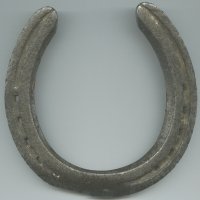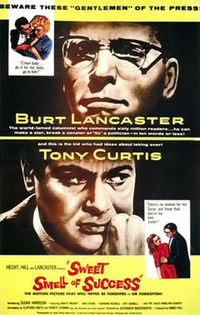 I have been making money blogging for five years now.
I have been making money blogging for five years now.
My success is based on 25 years of professional business journalism preceding my entry into the game, and 10 years of journalism education before that.
No brag. I know what I'm doing.
I still get a ton of PR pitches, but they are worse than ever before. PR people had little enough clue how to help journalists before the time of blogging. Now they are completely Clueless.
So here are some Clues.
What is a blog post? If you can visualize a news story as an inverted pyramid, and a magazine article as a circle, because you enter and exit the story at the same point, think of a blog post as being more like a horseshoe.
How big is the horseshoe? Its size is defined by the audience that reads and responds to it. Some posts, like this one, will be very small horseshoes. Others can be giant-sized.
I have no idea, when I start in on a blog post, how big its horseshoe will be. I want it to be as big as possible. More readers and more talk about my post means more money for me. The economic model is just that simple.
The shape of a horseshoe is incomplete. The inverted pyramid tells the whole story in every paragraph, so the editor can cut it at any point without fear. The circle is also complete — you give people a kicker reason to come in, lead them around, and give them a present at the end that delivers the meaning of the experience.
A horseshoe isn't like that. It starts, it ends, it holds readers, but it is open to interpretation. The meaning of the story is created by the feedback, by the urge to provide feedback, and pass-along readership is a form of feedback.
So don't tell me a story. Don't spin me. Tell me, in 25 words or less (preferably a lot less), why people want to hear about this post you want me to write. Why is it important, why is it worth passing on to others, why should people care? Don't tell me the lesson, but do give me a hook, something I can start with. If I'm good I'll take it from there. Sometimes I'm good, sometimes I'm not.
No PR people I know right now have this skill. They remain devoted to their clients. They don't push back, and explain to those clients the difference between a story and a blog post. Maybe because they don't know themselves.
A good blog post isn't about your client. It's about your client's take on something. The take, their contribution to some controversy of the day, may represent what the company does, the proposition they offer the market. But that's not the post, that's not the story.
The best thing a source can give me is a good quote, so if a PR person has some good quotes to offer on a topic of serious interest, sourced to the client, we may (unfortunately) not even need an interview. That's because the deadline on a blog post is now. Not later today, not a week from now, now. Right now. I'm writing right now. We're in this virtual office together, I'm on deadline right now, so you better give me something I can type as I hear it, something really useful. Or you're useless to me.
Oh, and if you've got a press release I should add to the post, give me the address where it lives on the Web. I like links. Links are vital. Be a link.
Not all blogs are like mine, not all successful bloggers like me. So let me offer some advice to reach other types of blogs:
- The Tip Blog — You don't need the whole story but you need to offer something no one else has, something that be big with a little digging. If you don't have that — if you don't really have that — don't waste a tip blog's time.
- The Hit Blog — Send a line that's funny and a link to something funnier and you're in. Send some short notes to several and see whose sense of humor you share.
- The Analysis blog — Unbiased evidence is the key to getting in here. You're going to be nothing but an ingredient, so stick to top-of-mind stories, and easily-verified facts.

So feed us or go away.
I don't know what all of this means to the future of journalism. I'm too busy making a living to care. Hopefully things will evolve. These are early days. If you consider 1994 the year the Web was spun, and 1947 as the first year of TV, we're still in the early 1960s here in TV terms. There's a long way to go yet.
The Internet, as a medium, is like the ocean. A search on any topics is going to yield a firehose of stuff, and our job, as reporters, is to be near the front of that firehose. Everyone else on the planet is trying to get to the same place. What works for me does not work for everyone, and frankly it doesn't always work for me.
I've often been shocked at what works and what doesn't work. Stories that are done thoughtfully with multiple sources of information, or based on real interviews, sink like stones. Quick hits meant only to vent at newsmakers may draw huge traffic.
No one is really an expert here. Whatever happened to Dave Winer? We spit 'em up, move 'em out, and we move on.
So don't waste my time, and don't be surprised if I don't answer your e-mails. Keep pitching, learn the rules, and before long you'll have a skill no one else has. And you'll taste the sweet smell of success yourself.










